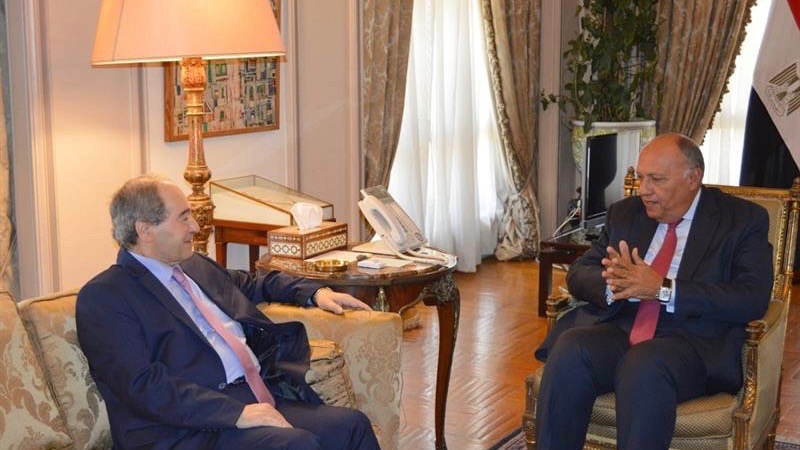Saudi Arabia may invite Syria to attend the upcoming Arab League summit in Riyadh in May, Reuters reported on Sunday, April 2, quoting three unnamed sources close to the process. The report confirms the trend of Syria’s reintegration in regional politics after over a decade of isolation.
While not officially confirmed yet, Saudi Arabia’s Foreign Minister Prince Faisal bin Farhan is likely to visit Syrian capital Damascus in the coming weeks to formally invite Syria for the summit, the report claims.
The Arab League summit is scheduled to be held from May 19.
Saudi Arabia and Syria have agreed to reopen their respective embassies in Damascus and Riyadh after Ramadan this year.
Diplomatic relations between the two countries were severed in 2012 when Saudi Arabia withdrew its ambassador from Syria, claiming that the Bashar al-Assad regime had killed civilians during the anti-government protests and the following civil war.
Later, Saudi Arabia and some other Gulf countries such as Qatar and the UAE openly supported US calls to provide armaments and other support to the anti-Assad forces and asked for his removal from power.
However, while the war in Syria is still continuing, Assad’s government—with the support of Russia and Iran—has been able to regain control over most of the territory. There are already talks of Turkey withdrawing support to the remaining rebels who control a part of north-west Syria.
A gradual shift
With the certainty that Assad will win the war against the rebels, Russia has in recent times been pushing for a Syrian rapprochement with other Arab countries, and the Saudi moves towards the country may be attributed to that effort. However, there is very little doubt that this is part of a larger realignment in the region’s politics.
The Arab League had suspended Syria’s membership in November 2011—within months of the war—and most of the Arab countries, including Saudi Arabia, broke diplomatic ties with the country.
Saudi Arabia’s close allies UAE and Oman were the first Arab countries to restore diplomatic relations with Syria in the last few years. Some Arab states, including Jordan and Lebanon, had maintained their ties with the Assad government despite not having formal and active diplomatic missions in the country. However, during the Arab League summit in Algiers last year, Algerian President Abdelmadjid Tebboune failed to convince the majority of the League members to agree to his proposal for restoring Syrian membership.
Following the February earthquake, which killed over 6,000 people in Syria, several Arab countries opened diplomatic channels and provided aid to the country, ignoring US sanctions. This boosted moves towards normalization.
Egypt, one of the largest Arab countries, provided crucial aid to earthquake-hit regions of Syria, and since then has started moving towards normalizing its relations with the country. On Saturday, April 1, Syrian Foreign Minister Faisal Mekdad was in Cairo to meet his Egyptian counterpart Sameh Shoukry and held talks on how to support Syria “to restore its unity and sovereignty over its whole territories.”
The China-mediated rapprochement between Saudi Arabia and Iran in the first half of last month has also created favorable conditions for greater regional integrity.
It is clear that the Arab world is going through a major realignment vis-a-vis the status of Syria. Saudi Foreign Minister Bin Farhan had told the reporters on March 7 that “there is a consensus building in the Arab world that the status quo [about Syria] is not tenable. And that means we have to find a way to move beyond that status quo.”





